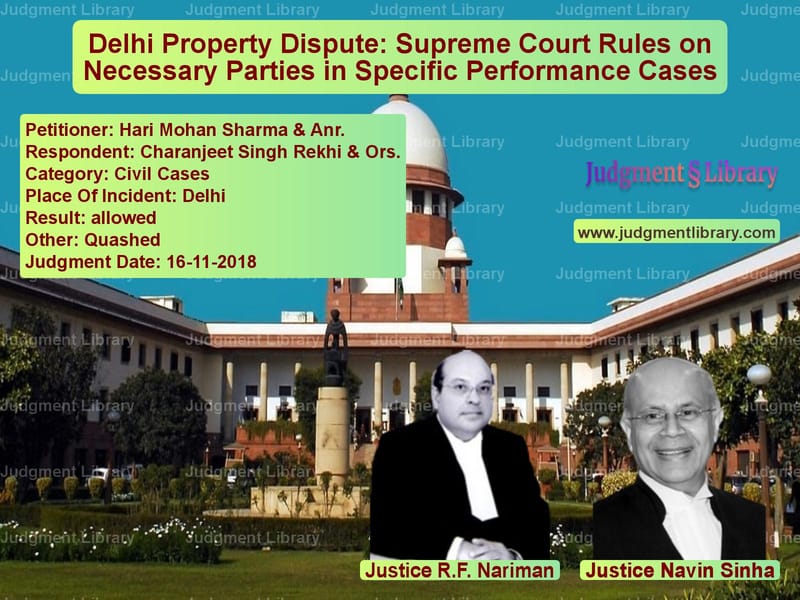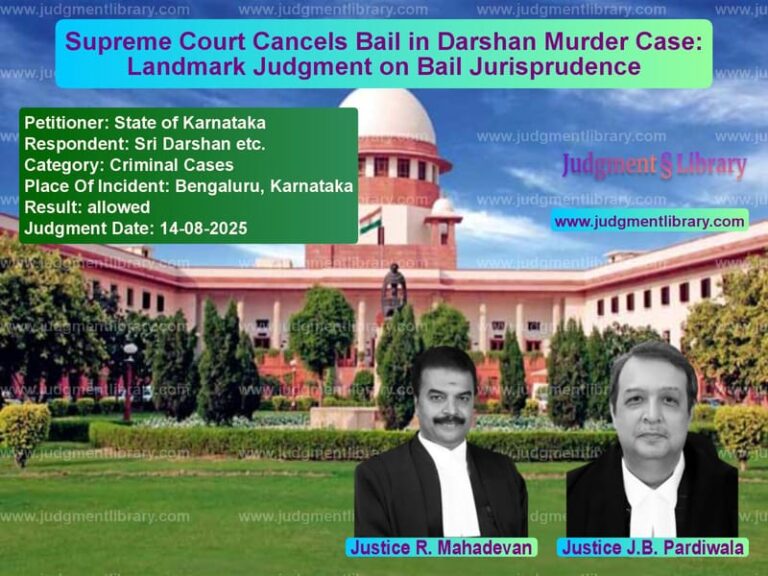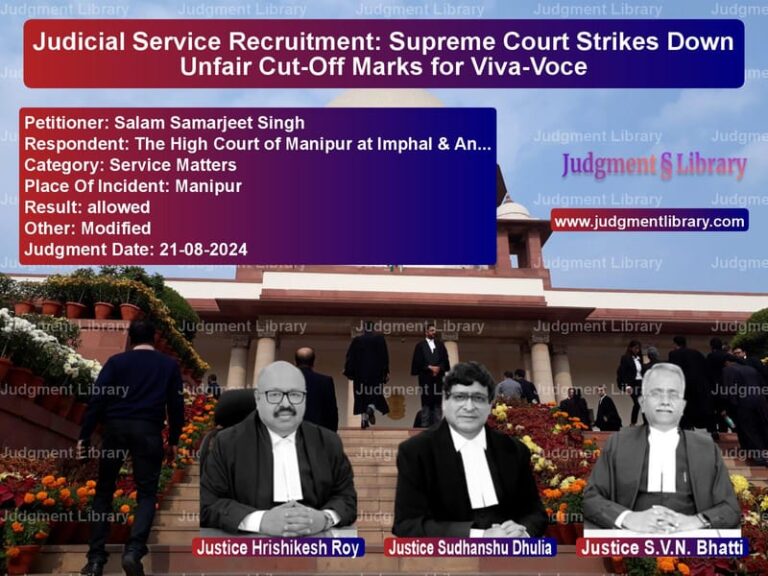Delhi Property Dispute: Supreme Court Rules on Necessary Parties in Specific Performance Cases
The case of Hari Mohan Sharma & Anr. vs. Charanjeet Singh Rekhi & Ors. revolves around a dispute concerning specific performance of an agreement to sell property. The Supreme Court was called upon to determine whether third parties, claiming to be the real property owners, could be added as necessary parties in a suit for specific performance.
The appeal arose from conflicting judgments of the Single Judge and Division Bench of the Delhi High Court. The Single Judge ruled that the additional applicants were neither necessary nor proper parties to the suit. However, the Division Bench reversed this decision, stating that the controversy over identity should be settled within the suit itself. The Supreme Court was tasked with deciding whether a suit for specific performance could include third parties who claim to be the real owners of the property in question.
Background of the Case
The dispute centers on a suit for specific performance where the plaintiffs sought to enforce an agreement against Charanjeet Singh Rekhi and Manjit Kaur, residents of Delhi. However, two other individuals, also named Charanjeet Singh Rekhi (one from Moradabad and another from Uttarakhand), filed interlocutory applications claiming that they were the actual property owners, and that the plaintiffs had mistaken their identity.
The plaintiffs opposed their inclusion, arguing that they had chosen whom to sue and that the alleged third parties were neither necessary nor proper for the suit’s resolution. The Single Judge dismissed the applications, but the Division Bench overturned this ruling, allowing the third parties to be impleaded.
Arguments by the Petitioners (Original Plaintiffs)
- The plaintiffs argued that they had entered into an agreement with specific individuals (Charanjeet Singh Rekhi and Manjit Kaur of Delhi) and not with the applicants claiming to be the real owners.
- If it turned out that the defendants were not the real owners, the plaintiffs’ suit would fail, and they would bear the consequences.
- Adding unrelated third parties would unnecessarily complicate and delay the suit.
- The third parties should file independent legal proceedings if they believed they had a claim over the property.
Arguments by the Respondents (Third-Party Applicants)
- The applicants claimed that they were the real owners of the disputed property and had never entered into any agreement to sell.
- Allowing the suit to proceed without determining the real ownership would lead to confusion and possibly fraudulent claims.
- They argued that they had a legitimate interest in the case as their identities had been allegedly misused.
- The dispute over identity was fundamental to the case and should be resolved within the existing suit rather than through separate proceedings.
Supreme Court’s Judgment
The Supreme Court ruled in favor of the plaintiffs, overturning the Division Bench’s decision and restoring the Single Judge’s order. The Court held that:
- The plaintiffs had the right to decide whom to sue, and if they had named the wrong parties, they would bear the legal consequences.
- Third parties claiming ownership were neither necessary nor proper parties in a specific performance suit.
- “It is clear that if ultimately it is found that there is no cause of action against either of these people, his suit will fail; or if it is found, in execution proceedings, that the aforesaid persons have nothing to do with the agreement to sell in question, such execution proceedings will fail.”
- The proper course of action for the third parties was to file independent legal proceedings, not to intervene in an ongoing suit.
The Court observed:
“This being the case, it is clear that the persons in the I.As are neither necessary nor proper parties in the present adjudication.”
Conclusion
The Supreme Court’s ruling reaffirmed the principle that plaintiffs have the discretion to decide whom they sue in specific performance cases. It emphasized that third parties cannot interfere in ongoing suits merely because they claim ownership, and they must seek remedies through separate legal actions.
This judgment serves as an important precedent for property litigation, ensuring that specific performance suits are not unduly delayed or complicated by additional claims that should be adjudicated separately.
Petitioner Name: Hari Mohan Sharma & Anr..Respondent Name: Charanjeet Singh Rekhi & Ors..Judgment By: Justice R.F. Nariman, Justice Navin Sinha.Place Of Incident: Delhi.Judgment Date: 16-11-2018.
Don’t miss out on the full details! Download the complete judgment in PDF format below and gain valuable insights instantly!
Download Judgment: Hari Mohan Sharma & vs Charanjeet Singh Rek Supreme Court of India Judgment Dated 16-11-2018.pdf
Direct Downlaod Judgment: Direct downlaod this Judgment
See all petitions in Property Disputes
See all petitions in Contract Disputes
See all petitions in Specific Performance
See all petitions in Judgment by Rohinton Fali Nariman
See all petitions in Judgment by Navin Sinha
See all petitions in allowed
See all petitions in Quashed
See all petitions in supreme court of India judgments November 2018
See all petitions in 2018 judgments
See all posts in Civil Cases Category
See all allowed petitions in Civil Cases Category
See all Dismissed petitions in Civil Cases Category
See all partially allowed petitions in Civil Cases Category







